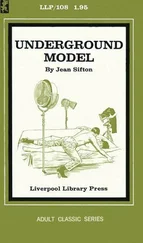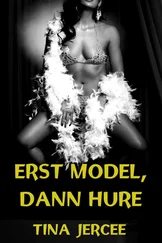Camille tripped over his running shoes on her way to get some earrings from the dresser. She blamed her clumsiness on Warren — or rather, blamed it on the annoying hunch that he was having an affair. The idea had occurred to her last week. Not that she believed it really — it was just a hunch — but why else would he be acting so strangely? He was distracted all the time, lost in a daze at the dinner table or else staring at the kids without speaking, as though regretting something he’d done. The other day, after Dustin’s green-eyed girlfriend had come over for dinner, she’d overheard him tell Dustin that he’d always had a thing for them. Green eyes. Warren, her husband of nearly twenty years. Who used to tell Camille that her own eyes were his favorite color, “blue as Lake Michigan.”
Other times he seemed about to speak, staring at her shyly before looking away, as if he was on the verge of telling her something but had decided not to at the last minute. It had happened last Monday in the bathroom. He’d actually begun to tell her something; she was sure it was a confession.
Camille looked at herself in the mirror above the dresser, studying the soft, motherly bulges at her waist. She wondered if Warren no longer desired her. “Erotic fatigue,” they called it on TV. Men were particularly prone to it, supposedly — something about the survival of their genes. Certainly she and Warren made love much less than they used to. Camille had confessed this to Nora Lundy, who’d admitted to having similar problems with her husband; to get in the mood, they’d started watching pornographic movies before bed. Camille had thought Nora was joking until she’d offered to send her a tape. She’d said no but an envelope had arrived in the mail anyway, empty except for a videotape with the label scratched out. Camille had slipped it in the VHS player when the kids weren’t home and was so dismayed by the threesome taking place in a dentist’s office that she’d ejected it after five minutes. What had shocked her more than anything was the woman’s nipples: one was much larger than the other, smearing her breast like a glob of food. Harder, the deformed woman had moaned, fuck me till I die. Camille tried to use the line that night with Warren, to see if it would excite him as much as the tattooed men in the movie, but she couldn’t bring herself to use any bad words. What had come out — confusingly, no doubt — was “I want to die.”
It must have been that night when her Saf-T-Coil failed to destroy his sperm. If that was in fact what had happened.
Camille went into the kitchen, which smelled sweet and unwholesome. Her children were eating Pop-Tarts with snowdrifts of icing on top. She tried to get them to eat three square meals, to make their daily way up the food pyramid, but it was a hopeless cause now that Lyle and Dustin could buy their own food. “Remember,” she told them, “you’re only supposed to have one serving of sugar a day.”
“How many Pop-Tarts in a serving?” Jonas asked.
“Pop-Tarts are fruit,” Dustin said. “You can have four servings.”
“They are not fruit.”
Dustin checked the box. “Says here ‘real strawberry flavoring.’”
“That’s not fruit,” Camille explained. “Wouldn’t you rather have a nice bowl of real strawberries?”
They looked at her in disbelief.
“Is that a joke?”
“Could we put strawberry flavoring on them?”
Camille sighed, looking at the unnaturally pink filling inside Jonas’s Pop-Tart. It did look delicious. To her chagrin, she found that her mouth was watering. “You may not care now, but later in life you’ll regret polluting your body.”
“How would you know, Mom?” Lyle said. “You’ve never done anything wrong in your life.”
“That’s not true, honey.”
Lyle and Dustin looked at each other. “Name one bad thing you’ve done,” he said.
“Well, let’s see. Let me think.”
“You forgot to recycle the bottles,” Dustin said.
“You drove over fifty?” Lyle suggested.
“Once, when we lived in Milwaukee, I got a two-hundred-dollar parking ticket for blocking a wheelchair ramp. Downtown. I protested the ticket and lied about it. I went back the next day and parked legally… then I, um, took pictures of the bumper so that it looked like it wasn’t in the red part.”
Lyle and Dustin seemed stunned, clutching their Pop-Tarts in midbite. Then they burst into hysterical laughter, their mouths pink as flowers. Jonas laughed too.
“You’re a regular menace to society, Mom,” Lyle said.
Camille turned to get some yogurt from the fridge, her face stinging. She knew they were just trying to be funny; still, it bothered her, their ganging up on her like this. She could have told them about Bobby Wurzweiler and the things they did to each other in his boathouse, all when he was supposedly engaged, his hands cold and strange and skittery on her breasts. She’d been seventeen to his twenty-one. To this day she remembered it perfectly: the calluses on his hands, rough from waterskiing; the stale, smoky, rotten-dessert taste of his mouth. He’d given Camille her first cigarette ever, rolling it from a crumpled-up bag in his pocket. They’d spent the whole summer down there in the Wurzweilers’ boathouse, making love on the mildewy floor and smoking Bobby’s homemade cigarettes and talking about running off together without telling their parents, picking leaves from their tongues as they smoked. He vowed to leave his fiancée, a girl from Madison, and Camille believed him. He was doting and persuasive, the heir to a beer fortune. He didn’t leave the girl, of course, but deserted Camille as soon as the summer ended; when she called his house finally, reckless with despair, he hung up at the sound of her voice. It was only through the newspaper that she’d found out about his plane crash, a week before the wedding, his body dragged from Lake Michigan with his father’s.
Camille spooned some yogurt in a bowl, watching her daughter get up to toast another Pop-Tart. It was a beautiful day, eighty degrees out, but Lyle was wearing jeans and a sweatshirt tied around her waist. Camille wanted to tell her only daughter that this was a mistake, that she should enjoy being young while she could, that soon enough the world would break her heart in ways she couldn’t begin to imagine.
No, of course, she didn’t really believe that. What was wrong with her today?
“Can I have some money?” Jonas asked her. Amazingly, he was not dressed in orange but in the blue Izod he insisted on calling a “crocodile shirt,” since the reptile on its breast had a triangular snout. Camille was relieved before remembering that all three of his orange shirts were in the wash.
“What for?”
“I want to buy a People magazine.”
Lyle and Dustin looked at each other. “You read People ?”
“I’d like to read about Mandy Rogers. The untold story. She’s on the cover.”
“The untold story,” Dustin said, “is that she’s chopped up in someone’s fridge.”
“Dustin!” Camille said. “What did your father say? Don’t give your brother ideas.”
“Mom, Christ. He already has ideas. Ask him about getting eaten alive by sharks.”
Camille dug two dollars from her purse and handed them to Jonas, wondering how on earth she’d ended up with such a morbid child. Distressingly, he could not seem to make friends. There had been someone from his fencing class for a while, a shy girl named Sheila with a red rash encircling her mouth. She’d come over one Saturday and left after an hour, insisting that Camille drive her home. Later, Sheila’s mother had called in a pique, explaining that Jonas had told her daughter there was no such thing as heaven. “A crock,” he’d called it. Camille talked to her son about his language but did not know how to address the larger problems he faced as an eleven-year-old atheist in orange pants. She had suspicions about the afterlife herself. Also, she felt in some troubling way responsible for his friendlessness. He was her last child, the least miraculous-seeming, and Camille sometimes wondered if she’d been a more devoted mother to Dustin and Lyle. Even as a toddler, Jonas hadn’t been particularly needy or affectionate, more interested in playing by himself than in winning her love. Camille had more or less obliged. Not that she loved Jonas less than his siblings: it was only that he made it easier to remember those parts of the world that demanded her attention. Sometimes she’d catch herself at one of his fencing meets, startled by the clamor of white-jacketed children finding their parents, and discover that she had no idea whether he had won or lost.
Читать дальше












